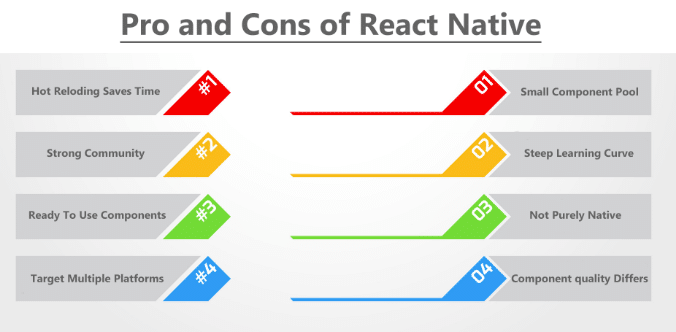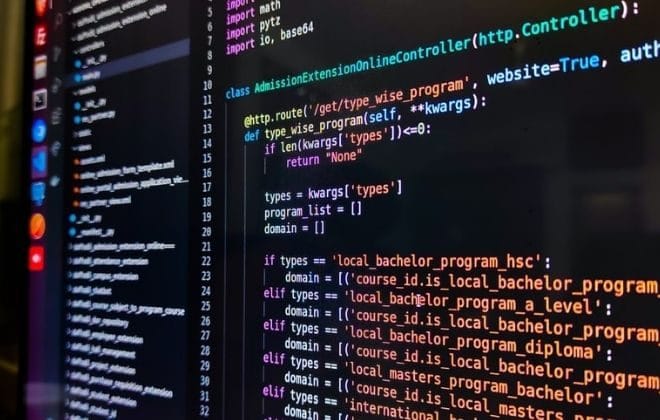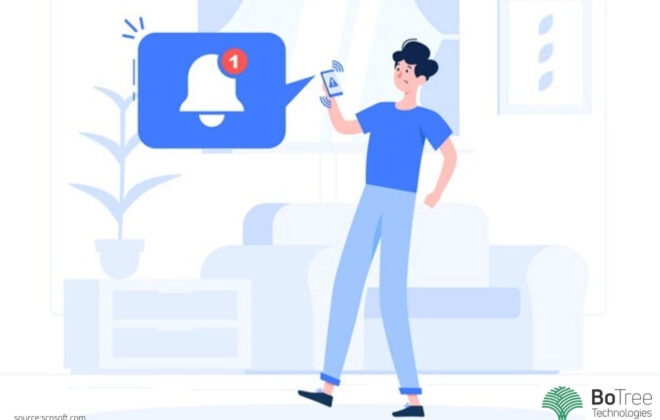
How React Native Helped In Building a Restaurant App (Case Study)
React Native is the first choice of cross-platform mobile app development framework for hundreds of companies. Native apps work best with both iOS and Android. But limited frameworks are available to build applications like these.
React Native is the most functional and diverse of all – it can help in developing everything from a restaurant table booking app to a music chat application. Restaurant app projects for mobile require a dynamic & cross-platform framework, and React Native is perfect for that.
React Native provides a native feel to the application. You cannot determine whether it’s written in Objective-C (iOS) or Java (Android)). Both the markets are important to target. Android has over 70% market share while iOS covers 27% of the market. Native applications have a higher reach and much more engagement than hybrid React Native apps.
In this article, we will highlight different aspects of React Native through an interesting case study. This Restaurant apps development case study will highlight the apps built with React Native an online table reservation system. Before that, there would be focus on what makes the framework suitable for building applications like the online table reservation system.
Checkout 14 Examples of React Native Apps that Prove its Power
React Native: The Plus Points
React Native is a powerful cross-platform framework for mobile app development. Any custom software development company today would recommend React Native as the choice of framework for iOS and Android apps.

Here are the reasons for choosing React Native for your Application –
- Supports cross-platform apps
The best thing is that React Native supports cross-platform app development. You don’t have to hire separate developers for Android and iOS. React Native developers build an application for both the operating systems using the same codebase. The components interact perfectly with the native applications. - Rapid app development
Since you are hiring a single developer for building both the applications, it takes less time to build. The single codebase greatly reduces the time taken to find bugs as well. You can quickly develop a Minimum Viable Product (MVP). You get more time-to-market for the product with React Native. - Rich user interface
React Native lets you create a rich user interface. There are pre-built decorative components that you can use for adding buttons, sliders, switches, and much more. You can design an interface that is aesthetically pleasing and catches the user’s imagination. - Third-party support
There are libraries for customization, testing, element addition and everything else. React Native supports third-party plugins to a great extent. You can link wearable, get analytics, and create interesting UIs for users. There are plugins for almost everything in React Native. - Easy updates
React Native uses Code Push – you can directly push updates to the app stores. You don’t need any plugin for that – apps are automatically updated as you push the latest releases. Users can see the changes without re-launching the application.
Now that you understand the benefits of React Native, let’s move on to the case study. It will help you identify where React Native is useful. The case study will focus on an online table reservation system that BoTree built using React Native.
Read more: Why React Native is the future of Mobile App Development
Online Restaurant Table Booking System: Proven Case Study for React Native
App is an online restaurant table reservation that simplifies the process of making a reservation in a restaurant. It also enables restaurants to provide discounts to the customers. The result is an increase in the number of customers and better management of reservations.
Let’s understand the case study for the restaurant app in detail. The client is based out of the US and wanted an application targeted at local restaurants.
App development in the restaurant industry requires extensive research and cross-platform facilities. Users are in the both iOS and Android zone. Therefore, a cross-platform framework like React Native is essential for a restaurant reservations system.
Challenges
Local restaurants often face challenges in getting bookings and table reservations. Managing them during the rush hours is a big difficulty. Every customer wants quick service.
Apart from that, getting a discount at the restaurant was also a problem. The issue was that there was no local app to connect these businesses with customers and help in better management. End-users couldn’t book at these restaurants and therefore, waited for hours to get a reservation.
Solution
We used the following technologies in building the application –
- Ruby on Rails
- NodeJS with Sequelize.js
- React Native
- PostgreSQL
- Heroku
The technology stack consisted of primary technologies for mobile app development. We also created a web application for table booking systems for small restaurants. It provides a 360-degree experience to the customers through mobile and web.
Food delivery app development also follows the same pattern. The admin part of the application had the data of local restaurants. More restaurants could be easily added to the system. The client can easily manage the data and connect with the restaurants.
In this restaurant website case study, the next step was to build the system for managing booking requests. There was a dashboard that showcased the booking requests to the client. We also offered the capabilities to provide discounts while booking the restaurant. We streamlined the entire workflow to manage the requests and connect users with restaurants.
The core features of the application included
- Scalable application: As more and more restaurants were added, the application required more data handling capabilities. We built a scalable application that can handle massive amounts of requests at once. The business performance remains unaffected as more data is added.
- Faster response time: Since NodeJS was used for building the application and had a REST API, the app provided a faster response time. It led to no lags and delays in the application, providing a delightful user experience.
- Single code app: React Native was the primary framework for building the application. It has a single codebase, making it easier to develop the application for both iOS and Android. It also enables faster deployment of the application.
- Less bug-fixing time: React Native lets you save a lot of time on implementation as well as fixing bugs. The single codebase allows you to reduce any amount of time taken for separately resolving errors in the application.
Conclusion
This online table reservation app is now one of the best restaurant reservation systems in the locality. It helped in overcoming the geographical constraints in the local area that limit local restaurant booking. It is available in the region for providing discounts and table booking services without any hassle.
BoTree Technologies is India’s trusted and leading web and mobile app development company. We have completed more than 200 projects. If you want your online table booking app, contact us today.





